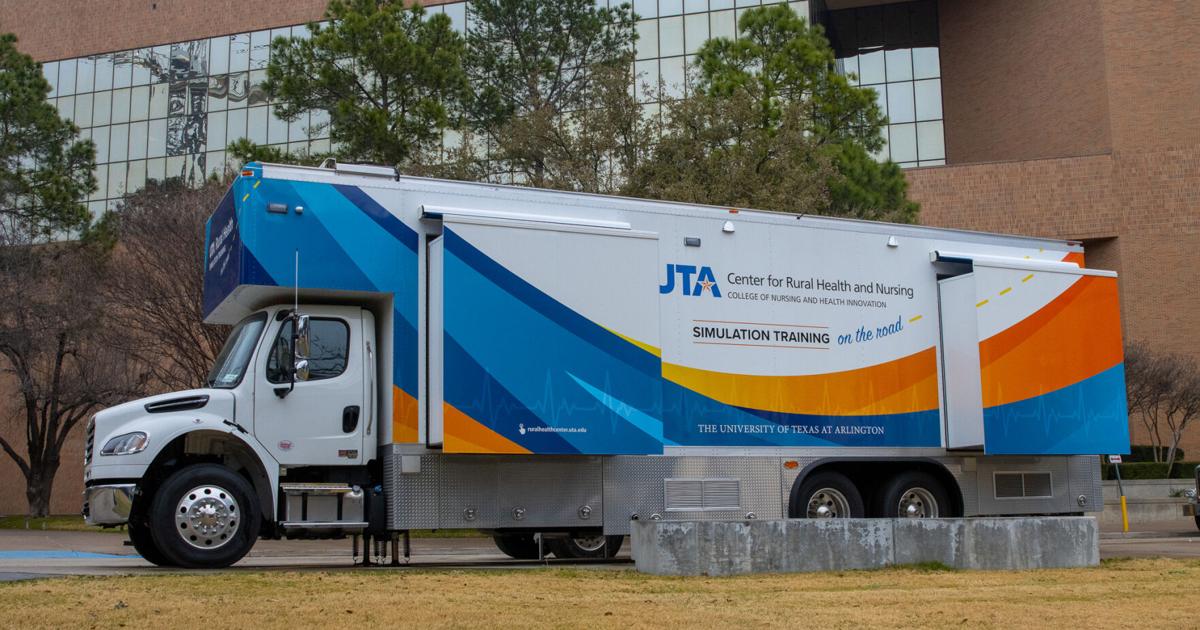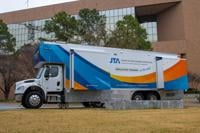The Mobile Simulation Lab is parked Feb. 10 between Pickard Hall and the Science and Engineering Innovation and Research building.
Last March, the College of Nursing and Health Innovation’s Center for Rural Health and Nursing debuted its mobile simulation unit, a 50-foot truck designed to travel to rural areas and teach students through simulated emergency scenarios.
The plan was to travel to Faith Community Hospital in Jacksboro, Texas, to conduct a needs assessment, create tailored simulations and run a pilot training program to get feedback and improve the program before moving on to the next location, according to previous Shorthorn reporting. That did not happen.
“We didn’t actually take the truck out,” said Jill Whitfill, assistant professor of clinical practice at the Smart Hospital. “The truck has not been out anywhere. We’re currently working on getting it deployed.”
On Sept. 27, they conducted the simulation unit’s pilot run by bringing accelerated online students to UTA. This was the first time those students were able to participate in a simulation, Whitfill said. They conducted medication administration, wound care dressing and worked with a simulated patient. They also did an escape room.
The mobile simulation unit has two operational bays and control rooms, allowing for simulation technicians to control the mannequins while educators assist the student teams, according to previous Shorthorn reporting.
“We want you to treat this like this is real,” Whitfill said. “It’s not make-believe. Because we use mannequins in some of our simulations, we stress that very highly.”
The simulation lab provides nurses in rural areas the opportunity to practice critical patient care skills in a controlled environment, to better understand medical situations before they encounter real-life scenarios, according to previous Shorthorn reporting.
Through high-fidelity mannequins like “MamaAnne,” who can simulate birth, students have the opportunity to intubate, check pulses, simulate patient care with cardiac arrest, do mock codes, IV training, medication administration and work on amputations.
Whitfull said in an email that the exact date of the deployment of the mobile simulation unit is currently unknown, but they are working toward getting it up and going.
“The beauty of this is that we’ll be able to take it out, and it is a educational building on wheels,” she said.
“I’d like to see us really go out and effectively train EMS, nurse practitioners, doctors, nurses.”
@atclements03


